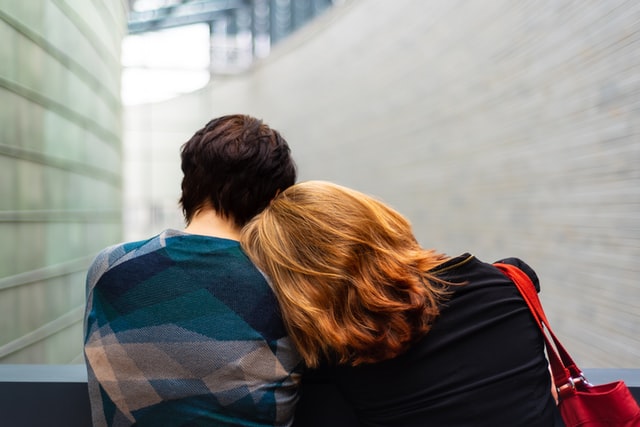Photo by Külli Kittus on Unsplash
Trauma and Romantic Relationships
What is Trauma
Trauma is any situation or event that causes a lasting emotional and physical response. This event can be anything from a natural disaster, physical assault, or accident to a situation such as being bullied, abused or teased by a parent, friend, classmate, or previous romantic partner. The response to trauma can include internalized shame, anxiety, depression, nightmares, physical pain, flashbacks, and reduced concentration. These symptoms can be ongoing or can resurface when a person is triggered by a situation that reminds them of the original event.
How Trauma Manifests in the Brain
Trauma causes the primitive part of our brain to activate the fight, flight or freeze response. When this happens, our brain is putting us into survival mode so that we can protect ourselves from danger. Sometimes our response to this real or perceived danger can become stuck in the part of brain called the Amygdala. This is where our emotional memories are stored along with unresolved trauma. If we are not able to process and resolve our feelings about some of our traumatic experiences, then our mind and body will still react in the same way we did at the time of the event.
How Trauma Impacts Romantic Relationships
If one or more partners in a relationship have unresolved trauma, this can lead to relationship difficulties that could end in break-up or divorce if not addressed or acknowledged. There are several ways that unresolved trauma can show up in relationship dynamics:
- Internalized shame can manifest from beliefs such as worthlessness, helplessness, abandonment or guilt that have resulted from past traumas. These beliefs can trigger the fight, flight, or freeze response in a partner that in turn causes them to lash out verbally or physically, withdraw or abruptly leave the relationship. They may not initially understand why they are being triggered if they are unaware of the connection between the relationship issue and their past trauma.
- Unresolved trauma can also lead to behaviours such as alcohol and drug abuse, gambling, pornography, sex addictions, and other addictive tendencies that are being used to numb or avoid the feelings or beliefs that have resulted from past trauma. These behaviours then create issues within the relationship that further the cycle.
- Trauma survivors can also have a general lack of trust in others. This lack of trust can create suspicion, fear and hypervigilance to any perceived threats within a romantic relationship resulting in decreased connection, lack of vulnerability, fear, and uncertainty on the part of both partners.
How to Address Relationship Issues around Trauma
- The first step is to recognize or acknowledge that unresolved trauma is contributing to the relationship issues.
- If there is abuse of any kind, then this is not acceptable, and the victim needs to remove themselves from the situation until the partner can get some help.
- Couples counselling may help both partners to understand each other better and recognize the triggers that are contributing to the unhealthy patterns within the relationship. Better communication, patience, empathy, and boundaries may improve the relationship.
- The partner with trauma needs to consider individual counselling to help address their unhealthy beliefs, negative patterns and feelings that may be contributing to the relationship breakdown. There are many ways to address trauma, a few of them include:
- Talk therapy
- Cognitive-Behavioral Therapy
- Eye-movement Desensitization and Reprocessing Therapy (EMDR)
- Mindfulness


